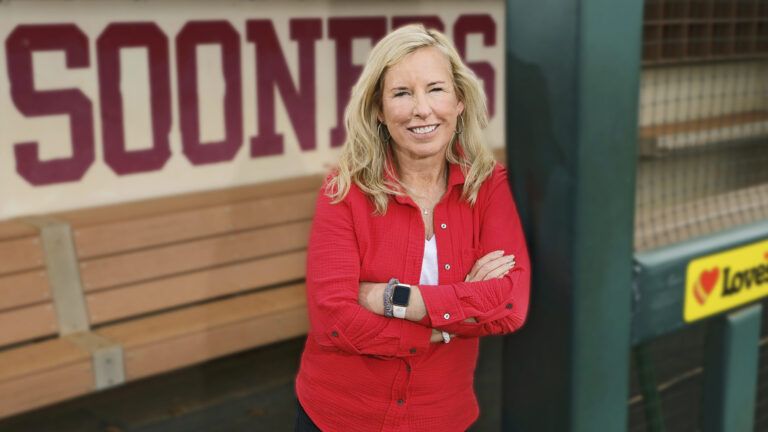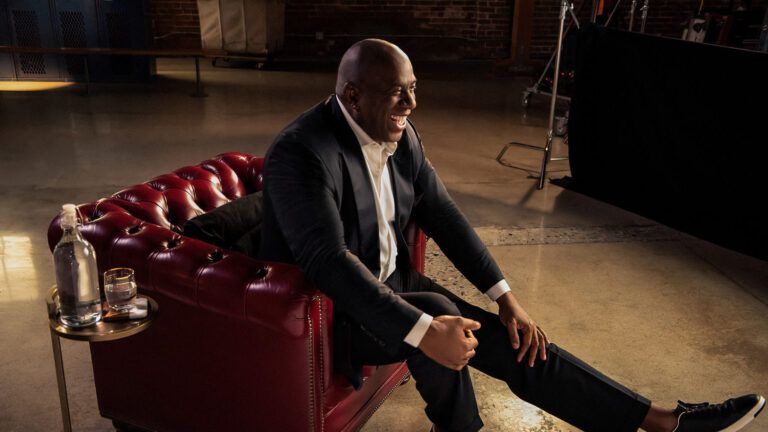How do you feel about jinxes? Do you think trouble comes in threes? Do you avoid black cats, walking under ladders, and the number 13 because someone told you they're unlucky?
Well, a lot of things in baseball are supposed to be unlucky too. Let me tell you about something that happened to me seven seasons ago. Ballplayers call it "the sophomore jinx."
Community Newsletter
Get More Inspiration Delivered to Your Inbox
I'd had a great rookie year in 1975—right from the opening game of the season when I crashed a home run, two singles and drove in four runs for an 8-4 win over Bob Gibson and the St. Louis Cardinals.
Alternating that season between the outfield and catching, I batted .270 with 17 home runs and 68 runs batted in, and was named the Sporting News Rookie of the Year. The newspapers said I had that magical something called "The Touch"—definitely not unlucky. The right stuff.
But during the off-season and into spring training, the press and my teammates began kidding me about this sophomore jinx that was supposed to get rookies who'd had good years. It was meant in fun, of course, and we always had a good laugh about it.
But deep in the back of my own mind, it wasn't so funny. I'd always been a big fan of the game, and I'd read of those guys. Rookies of the Year, who'd fallen apart their second season in the big leagues. It made me wonder if there really was something to this sophomore jinx.
It didn't help when, playing out of position during a spring-training game in Winter Haven, Florida, I went crashing into a brick wall in the outfield while chasing a fly ball. It took 15 stitches to close the gash in my forehead. Worse, I took a lot of ribbing from my teammates. "Stay away from Carter," they said. "If he lasts until the season…"
I made it to the season okay, but I couldn't do anything right. I was hitting way below my rookie-year average. Every time I went up to the plate, I told myself to do the same things I'd done the year before, watch the ball the same way, swing the same way, follow through the same way.
But I wasn't hitting the ball, and the harder I tried, the worse things seemed to get. The first couple months of the season, I had just a few home runs, less than 20 RBIs.
Finally, after Memorial Day, things began to turn around for me. Then, on June 6—wham! At least that's what it must have sounded like. I was playing right field that night when a fly ball was hit into short right-center field. Both Pepe Mangual, our center fielder from the Dominican Republic, and I went charging after the ball.
Pepe was yelling, "Yo tengo! Yo tengo!" and I was shouting, "I've got it! I've got it!" Just as I got my glove on the ball, we crashed into each other. The cracking sound was my thumb—broken. Diagnosis: out six weeks.
I couldn't believe it. Just when I thought I was getting things turned around, this had to happen. As a Christian, I believe that we can use bad things that happen to us for good, that God never gives us more than we can handle. I'd learned that from the Bible, and I wanted to believe it.
But now I just had to wonder what God was doing. And I knew that it must appear to my teammates that I really was jinxed.
I came back in late July, but the situation was hardly better. Into August the team played worse and worse, failing deeper into last place in the National League East. And I was getting more and more frustrated, but I had to prove that Gary Carter wasn't just some flash-in-the-pan.
Favoring the thumb that still didn't feel quite right, I strained ligaments in the same hand, then broke a bone in my other hand late in September. My season was finished. My batting average was a mere 219, with only six home runs and 38 RBIs.
The sophomore jinx. Everybody was convinced it had got me, and I was beginning to believe it myself. Besides, it was an easy way to explain away a lackluster season. Blame the jinx for my hitting; the injuries (the first ever in my baseball career); the apprehension I felt when I batted, or thought about my future. Yeah, I was jinxed.
But at home, Sandy, my wife, wouldn't buy any of this sophomore jinx stuff. "Gary, we've never connected luck or chance to our lives," she said one night as we sat watching a ball game on television. "If things are going bad, then there's got to be a reason for that. But I believe God is still in control, not some jinx. I don't think the Bible says anything about jinxes."
What she said spurred me to use some of my extra free-time to look more closely at the Bible. I found plenty about love and faith and trust in God. But no jinxes.
I read about how God takes care of us, watching over all of us all the time. "For He makes His sun rise on the evil and on the good," Jesus said, "and sends rain on the just and on the unjust." God makes, God sends—no place for superstition there.
Any lingering doubts I might have had were erased when I read about Paul. If anyone had cause to blame his problems on bad luck, he did. Yet what did this beleaguered saint write? "But one thing l do, forgetting what lies behind and straining forward to what lies ahead, I press on toward the goal for the prize of the upward call of God in Christ Jesus."
He wrote about faith and perseverance and hard work overcoming adversity, and he didn't worry about why things had gone against him. The more I read, the more I realized the one thing that I was to do during a tough spell, a long slump, a "jinx": Press on, look forward, trust the One who truly controls my life.
Funny thing about jinxes. We create them, give them power and substance. just by believing in them. They become real because we make them real. But they vanish, I found out, when exposed to good strong faith.
That winter I worked harder than ever to get back in shape. And with a great showing in spring training, I won the catcher's job full time, and went on to hit 31 home runs that season with 84 RBIs.
I've been behind the plate with the Expos ever since. I've seen hot streaks and slumps, All-Star games, pennant races and playoffs, and maybe this season a World Series. But I've never seen another jinx. I've just stopped believing in them—and kept putting my trust in God.





